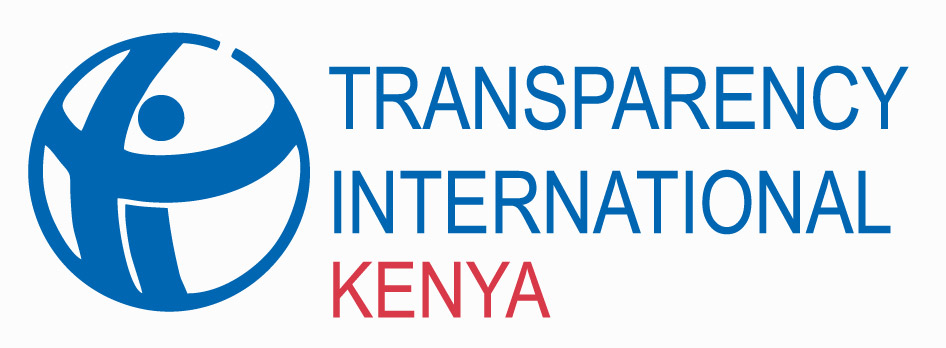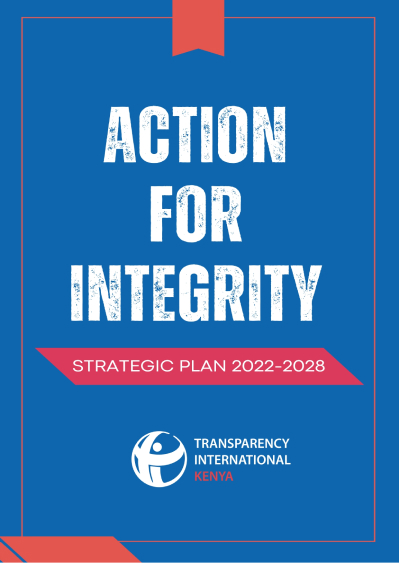Nairobi, Kenya – 28th September, 2017: Most individuals fail to report the cases of corrupt practices in the mining sector. According to a report Corruption Risk Assessment in Mining Awards, 2017 published by Transparency International Kenya, cases go unreported due to lack of confidence in the authorities mandated to handle such cases. Lack of comprehensive complaints handling mechanisms was also cited as a contributor to this. The assessment established the existence of a weak legal framework to promote whistleblowing in Kenya.
The findings further indicate that despite the existence of the Access to Information Act, 2016, there still exist gaps with regards to knowledge of the legal framework that governs the mining sector in Kenya and availability and accessibility of relevant public documents and/or records.
The Corruption Risk Assessment identifies risks which are likely to occur in the award process. They include: speculation around land that is subject to a mining permit application, lack of verification of the accuracy or truthfulness of environmental impact assessment (EIA) reports by the relevant authorities, political and external interferences and community participation among others.
From the study, there are a number of gaps that the need attention of key stakeholders. The report recommends different intervention levels that will help support transparency, accountability and good governance of the mining sector.
Summary Recommendations
Ministry of Mining
- Fast-track gazettement of all the necessary Mining Regulations and Guidelines Sensitize companies, affected communities and all the other relevant stakeholders on the use of the newly re-configured and upgraded cadastre system 2016 to Improve their knowledge on the online licensing system and to achieve the objectives of the Mining Act, 2016
- Sensitize companies, affected communities and all the other relevant stakeholders on the use of the newly re-configured and upgraded cadastre system 2016 to improve their knowledge on the online licensing system and to achieve the objectives of the Mining Act, 2016
- Simplify laid down procedures and steps involved in acquisition of mineral rights
National Environmental Management Authority
- Create awareness amongst the affected communities on the Environmental Impact Assessment process to promote their meaningful participation in the process
- Follow up on the EIA process to ensure accuracy of EIA reports and setting up of appropriate mitigation measures
- Publish the EIA reports to promote access to information on the impacts of the proposed projects
Mining Companies
- Set up proper mechanisms that would promote incorporation of views from the affected communities in the EIA processes
- Develop internal policies to promote transparency and engagement with communities based on best practices such as the Informed Free Prior Consent Standards
- Adopt integrity management initiatives within the organization in line with legal frameworks available locally and at country of origin
Civil Society Organizations
- Create awareness on the licencing processes amongst the affected communities as this will promote their participation at different stages
- Monitor operations of the Minerals Rights Board to ensure its compliance with the laid down procedures in making recommendations for issuance of licences
- Support the affected communities in seeking redress for violations that may arise as a result of lack of adherence to laid down procedures in awarding various licences
Affected Communities
- To proactively seek information on the different mineral licensing processes to effectively engage with mining companies and government departments
- To ensure adequate representation at all forums where deliberations on minerals take place
- To proactively identify and report all corruption related incidents that may result into manipulation of the licensing processes
Next Steps
TI-Kenya has planned several activities including stakeholder engagements in the mining sector to share and discuss the recommendations of the assessment. Since this is the first phase of the project, TI-Kenya will roll out the next stage to implement the interventions recommended. Advocacy interventions around strengthening policy and legal framework will be conducted with an aim of promoting transparency, accountability and good governance in the mining sector. TI-Kenya will also spearhead capacity building targeting affected communities to empower them with knowledge on mining processes. TI-Kenya welcomes partnerships with all stakeholders in the mining sector to work towards promoting accountability in the sector.
Methodology
Data was collected through Focus Group Discussions (FGDs) and Key Informant Interviews targeting Civil Society Organizations working in the sector, affected communities, mining companies and government departments with crucial roles in decision making for the processes entailed. TI-Kenya reached out to a total of 78 respondents (31 female and 47 male) in the three counties, through Focus Group Discussions. Validation workshops were then held in the three Counties and at the national level where key stakeholders reviewed the identified risks and offered their scores by giving clear justifications to the scores. Thereafter, the advisory group comprising of key TI-Kenya staff, including the M4SD national Researcher analysed the feedback from the validation workshops and rationalized the scores for the identified risks.
Please download the full report here
Read the remarks by Dr. Ibrahim M. Mohamed, CBS Principal Secretary, Ministry of Mining, at the Launch of the Corruption Risks Assessment Report in Mining


